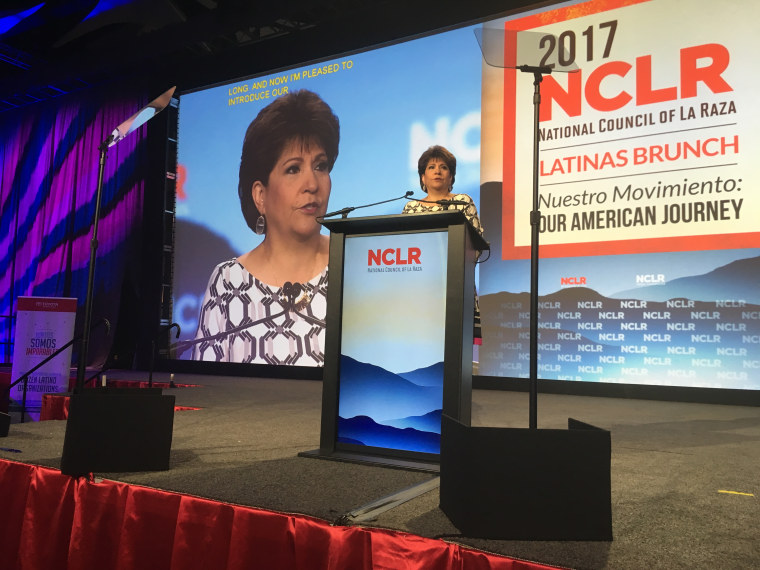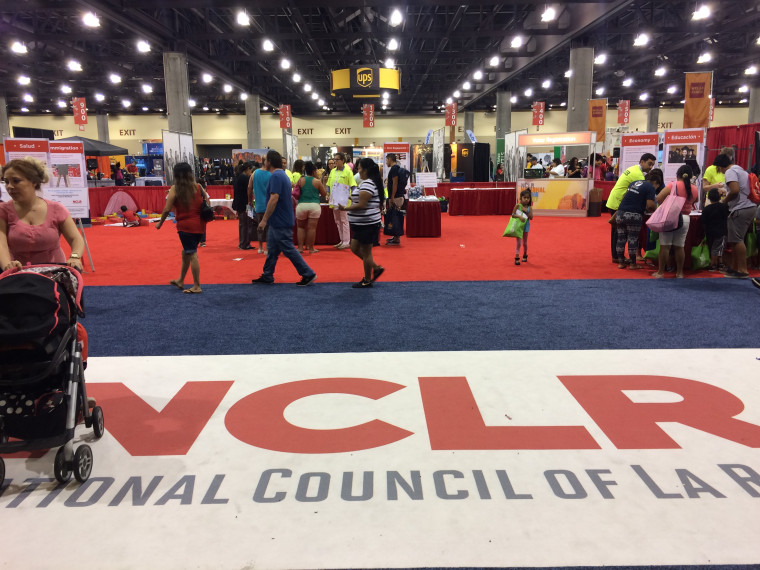Latino leaders have had mixed reactions the former National Council of La Raza's change of its name to UnidosUS, with most opposition coming from Latinos of Mexican descent, an informal survey of the leaders found.
According to the online survey by the National Institute of Latino Policy, or NILP, 55 percent of respondents of Mexican descent opposed the change, while participants of other backgrounds were more likely to support it: 56 percent of Puerto Rican respondents and 72 percent of other Latinos backed the change

A total 139 Latino academic, business and advocacy leaders responded to the survey conducted July 12-17. Angelo Falcon, president and founder of NILP, declined to break down how many people were in each group becausenhe didn't want to present the survey as scientific, he said. He relied on an email listserv to circulate the survey among the leaders, he said.
"It is clear from these findings that the NCLR (UnidosUS) needs to pay special attention to the needs of their Mexican-American/Chicano base when making changes. This means that it also needs to maintain a delicate balancing act when reaching out to non-Mexican-American Latinos groups, it also seeks to serve and represent," Falcón said in a report on the survey. "This is an ongoing tension that they will need to address regardless of the name change."
Despite the mixed support, the breakdown of the NiLP survey showed that less than 13 percent of the respondents who participated in the survey saw the former NCLR as "very effective." About a third said NCLR was not effective.
But Falcón noted that the survey responses contrast with the findings of another survey the institute did showing that before the name change, NCLR was viewed as one of the most effective national Latino organizations. They were seen as the second most effective by Latinos of Mexican descent and Puerto Ricans and most effective by Latino leaders of other backgrounds.
Concern over the name has long dogged the organization’s image, despite being heavily funded by corporate enterprises, such as Coca-Cola, Chevron, General Motors, and others, according to their annual report.
The group was known as the National Council of La Raza, but in recent years had tried to rely on the name's abbreviation, NCLR.

The organization is one of the largest Latino advocacy groups in the country. But the its leadership felt pressure to change the name. The name often was the target of criticism by right wing groups that tried to equate its inclusion of the Spanish word "raza," which the group has always used to mean the Latino population or community.
The group's agenda has been promoting civil rights, acting as a coalition for a collection of community groups that provide a number of services to Latinos - health, education, home buying and more - and advocate for policies seen as beneficial to Latinos. It has not been set up to push a racial supremacy ideaology.
In an interview with NBCLatino, UnidosUS president and CEO Janet Murguía denied that the conservative backlash was part of the reason for the change.
Related: National Council of La Raza Changes Its Name to UnidosUS
The effort to move the group more to the mainstream, to make it relative to more and to younger Latinos and to raise greater awareness and money for their cause, surprised many Latinos given the history of the organization.
Falcón said there was no consensus among those who opposed the name change on why they oppose it. The top reason given by leaders of Mexican descent was: "This change seems like caving into conservatives who criticize the use of the term 'Raza' as racist." But that was given by only about 36 percent of the leaders of Mexican descent.
For leaders of other Latino subgroups, the top reason was that the new name "doesn't say anything."
Among Puerto Rican leaders, the top two reasons were: "Historically the National Council of La Raza name is an important institution in our community and should be retained" and "The new name, 'UnidosUS,' doesn't say anything."

